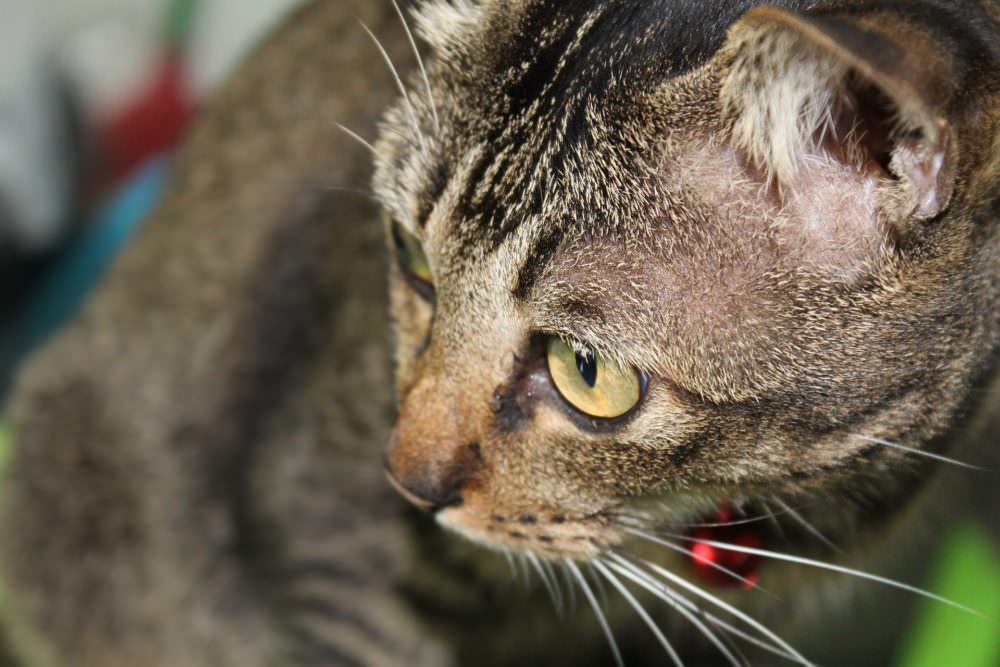All cats cough sometimes. Just like people, cats do it for a variety of reasons, but a persistent cough should be checked out by a vet. A veterinarian can help you rule out some of these causes to pinpoint why your particular cat is coughing and give you a plan for treatment. Unlike dogs, there are fewer common causes of a cough to explore and sometimes it is hard to tell if your cat is coughing, vomiting or both. The following are some of the reasons for persistent coughing – not in order of importance.
- Birth Defects and Developmental Abnormalities
Anomalous disorders occur when anatomical structures do not develop normally. Such disorders can occur from birth as a congenital defect, like cardiac malformations or structural deformities in the thoracic cavity and can cause a cough. If the structures inside the chest are abnormal at birth or do not follow a normal development plan, coughing could be a clue.
Because there is such a wide range of causes, it is important to make sure that a surgical intervention is not indicated. Birth defects can often be completely repaired surgically, if found early, so do not delay. A pet that has never coughed in her life and is now a coughing senior is less likely to suffer from an anomalous defect.
- Neoplasia (Cancer)
Lung cancer will cause chronic coughing. The lungs get a lot of blood supply because their job is to oxygenate all of the blood, so a type of cancer that sheds cells into the blood can spread to the lungs. Coughing is not the only sign of cancer (and not even the most common sign of cancer in cats) but if your cat has a chronic cough and is a senior cat (greater than 8 years of age), cancer must be on the list of possible causes and a vet consulted to be sure that she is comfortable and you know what to expect.

- Infections
Bacteria, viruses and fungal infections are all on the suspect list for a cough. Respiratory infections are very common in cats of all ages and can cause a cough. Feline Respiratory infections are caused by bacteria and viruses that can act together to make your cat very ill. This respiratory complex is very contagious and can easily be spread between cats.
If there is a history of your cat spending time with other cats, like boarding, grooming or playing outside, she could have been exposed to bacteria and viruses. Fungal infections are not as common as the other infectious causes in many parts of the country, but should be on the list, especially if your cat has a fever, is acting very sick and spends a lot of time outdoors. Antibiotics are only appropriate in the case of bacterial infections, whereas antifungals or antivirals have specific applications also. Any age cat can suffer from infections, but I most often see young cats that were adopted from a shelter or older resident cats with a new family member from a shelter. Cats typically recover completely from routine respiratory infections if treated appropriately, but fungal infections are more difficult to treat. It is imperative that you and your vet find out what you are treating to get the best outcome for your cat. If your cat has a runny nose, watery eyes and is coughing and sneezing, he is very likely to have a respiratory infection and may require some aggressive treatment, but his prognosis to recover is good if treated early and appropriately.

- Inflammatory Disease
Inflammation is a process that is characterized by the production of chemicals by the body in response to a trigger. Sometimes the trigger is an infection, but sometimes, the inflammatory process is prompted by other causes, like allergy or auto-immune disease.
Inflammatory coughing can be caused by things like asthma and allergic bronchitis. Treatment will be aimed at stopping the formation of the chemicals and slowing their damaging effects. Any age of cat can experience inflammatory coughing and some of the causes can be life threatening, so getting an exam and diagnosis is imperative. Depending on the underlying issue, inflammation can be a short term and curable process or a more long-term and incurable (but manageable) process. Asthma and allergic bronchitis are certainly a part of my feline patient load. Diagnosis of inflammatory disease would probably require radiology and blood work.

- Parasites
Many people do not realize that parasites can cause coughing. Not only are there lungworms that live in the lung tissues, but heartworms are known to invade the heart and lungs. Even the intestinal parasites can have a part of their life cycle that causes them to migrate through the lungs. Most parasite issues can be easily prevented with regular parasite prevention programs. The best de-wormers and all heart worm preventives are available only by prescription, so you will need to see a vet to manage this possibility. Unfortunately for cats, they are a “dead end” host for heartworms which means worms can get into a cat and cause problems, but they are unlikely to flourish there. These misplaced worms are even more likely to incite an inflammatory reaction. Many cats infected with a single heartworm suffer significant consequences, including acute death, and heartworms have been accused of contributing to the high numbers of cats diagnosed with asthma each year as another consequence. There is no good and readily available test or treatment for heartworms in cats right now and your only hope is to prevent infection in the first place.
Knowledge is power when your pet is sick. The more you can find out about why your cat is coughing, the better equipped you are to manage it. Coughing is not going to be something you can manage on your own, since the causes can be varied, but a veterinarian can help you narrow the list and start on the right path to treatment.


